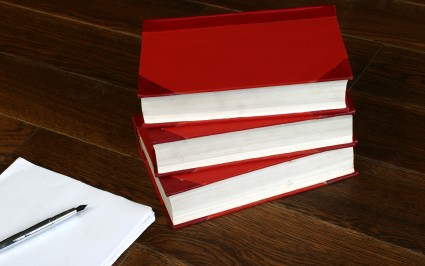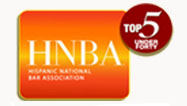
- Do Most Truck Accident Cases Settle?
- How do Insurance Adjusters Settle Cases?
- How Do I Know If I Have a Good Settlement Offer?
- What is the Statute of Limitations for Making a Claim for a Truck Accident?
- What Damages May I Recover in a Truck Accident Case?
- The Trial of My Truck Accident Case
- Motion Strategy and Practice
Motion Strategy and Practice
This particular problem focuses on Pretrial Motions, specifically Motions to Exclude, Strike or limit testimony and evidence at trial.
I. Motions In Limine
Source: Federal Rule of Evidence 103; local rules of the applicable district court.
Time Limitations/Schedule: Deadlines are generally governed by Court’s Pre-trial Order/Schedule and the Local Rules of the district court in which the action is pending.
Purpose: A procedural device to allow the parties to identify certain evidential issues the Court may be asked to rule upon at trial. Motions in Limine allow the parties to brief the issues before trial. The motion attempts to avoid or prevent the admission of irrelevant or prejudicial evidence to the jury during voir dire or at trial.
Advantages of the Motion in Limine: The motion provides for the more orderly presentation of evidence by eliminating surprises at trial; educates the trial judge on evidentiary issues before trial; creates a more thorough record for review; allows parties to tailor voir dire and opening statements appropriately; and gives the parties advance warning and time to thoroughly research the evidentiary issues before trial.
II. Thomas v. Ajax Motors (the hypothetical case)
Plaintiff should anticipate filing the following motions:
A. Motion to Exclude Evidence of Settlement with Daubert/Kuhmo under FRE 408 Compromise & Offers to Compromise; and
B. Motion to Exclude Marijuana use by driver under FRE 404(b)
Plaintiff’s counsel should consider styling the motion as a Motion to Exclude/Strike rather than a Motion in Limine. A Motion in Limine may be problematic when a definitive ruling is not obtained prior to trial. A Motion in Limine may not be ruled upon until the time the evidence or testimony is presented. The purpose of using a Motion to Exclude is to obtain a pre-trial ruling on evidentiary motions that seek to exclude evidence. The movers should also submit a Notice of Hearing and an Order Excluding Evidence. Under FRE 103(a)(2):
. . .Once the court makes a definitive ruling on the record admitting or excluding evidence, either at or before trial, a party need not renew an objection or offer to proffer to preserve a claim of error for appeal . . .
But what is a “definitive” ruling? Caution dictates that you make an offer of proof, or renew objections raised at the trial to preserve the matter for appeal.
III. Discussion of Plaintiff’s Responses to Defendant’s Anticipated Motions in Limine/ Motions to Exclude:
Under FRE 104(a), the district court can hold a preliminary hearing on the admissibility of evidence. It also has the power to make preliminary rulings on the admissibility of expert testimony under FRCP 16(c). In Daubert v. Merrell Dow Pharms, Inc., 509 U.S. 579, 113 S. Ct.2786 (1993), and Kumho Tire Co. v. Carmichael, 526 U.S.137, 119 S.Ct. 1167, (1999), the Supreme Court directed that a district judge is to act as a gatekeeper for all expert testimony by evaluating whether the proffered testimony is reliable enough to be presented to the jury.
In order to properly object to an expert’s opinion offered under FRE 702, a party should file a pretrial motion to exclude the expert, or limit testimony. See, e.g., McCullock v. H.B. Fuller Co., 61 F.3d 1038, 1041 (2d Cir. 1995); Bradley v. Brown, 42 F.3d 434, 436 (7th Cir.1994). Under Daubert, the mover should present a written motion to exclude or strike, challenging expert evidence, together with any affidavits and any supporting material on which the mover intends to rely. The motion should identify with specificity the testimony challenged, and state the grounds for objection with sufficient particularity to permit a response. Plaintiff should object to any motion that : (1) does not set forth the material on which the mover is relying such as affidavits; (2) does not identify specific portions of the testimony to which the objection pertains; or (3) does state grounds for the objection in sufficient detail to permit a response. Discovery may sometimes be necessary in connection with Daubert motions when the party relies on affidavits of third party experts. The courts may normally afford the party an opportunity to take such depositions.
In response to such a motion, the district court may make a pretrial evaluation of whether an expert’s opinion is inadmissible. See FRE 104(a). If you anticipate the use of the expert testimony at trial, make sure that the deadlines set forth in the court’s pretrial order are calendared well in advance so that adequate FRCP 26(a) disclosures may be made covering the subject matter of the anticipated testimony. See FRCP 16(c)(6), 26(a)(B). As plaintiff, you may wish to make disclosures of your experts early enough so that their opinions and the methodologies underlying those opinions will facilitate the timely resolution of any Daubert challenges.
The Federal Rules of Evidence, as related to FRE 701, 702 and 703 (the sections dealing with experts witnesses) were amended in December of 2000. FRE 702 codified the reliability analysis set forth in Daubert and Kumho and added three requirements to the rule of admission of expert testimony: (1) the testimony must be based upon sufficient facts or data, (2) the testimony must be the product of reliable principles and methods, and (3) the witness must have applied the principles and methods reliability to the facts of the case.
Generally, any motion challenging plaintiff?s expert will fall in three main areas: (1) the expert is not qualified; (2) the expert’s opinion is not relevant; and (3) the expert’s opinion is not reliable. When such a challenge is raised, the court is given broad discretion in determining what proceedings are necessary to determine an expert’s reliability. See, Kumho, 526 U.S. at 152, 119 S.Ct. at 1176. The court has great latitude in determining how to make Daubert reliability findings before admitting expert testimony. Typically, the moving party will, for tactical reasons, want a Daubert hearing. The reasons are that a formal hearing may serve to educate the court, give the movant a preliminary and test-run at cross examination of your expert and increase the burden and litigation costs of the nonmoving party. In Kumho Tire, the Supreme Court stated in dictum, that district courts, in their sound discretion, may convene live hearings or not, depending in part on the relative novelty or complexity of the issues. Fed. R. Civ. P. 43(e) clarifies that district courts may “hear” motions on affidavits, without live testimony.
The proponent of the evidence has the burden of establishing its admissibility. To meet that burden of production, the proponent must offer evidence — or other material, see Fed. R. Evid. 104(a) — sufficient to make out a prima facie case of admissibility. Experts can usually make this showing through their testimony. A well prepared expert report should contain everything needed to defend the expert’s qualifications, theory and methodology Accordingly, the plaintiff should first seek to have the court accept the reliability of its expert and avoid the costs of unnecessary and expensive reliability proceedings. Counsel obviously will file oppositions and supporting affidavits to counter any Daubert challenges. Another option is to amend the challenged testimony to cure the objection. Amending the testimony by clarification or elaboration should be used when the amendment is not material to plaintiff’s theory of the case. If necessary concede a valid point that does not undermine the expert’s overall testimony.
Plaintiff’s response to the defendant’s motion to exclude should attempt to negate the grounds set forth in the motion to exclude, while setting forth how the tendered expert’s opinion is reliable and relevant to the pending case.
With regard to the expert’s qualifications, the party offering the expert testimony should be prepared to show that the expert has the proper educational background or requisite experience to be qualified as a person with specialized knowledge. McCullock v. H.B. Fuller Co., 61 F.3d 1038, 1042-43 (2d Cir.1995).
To establish the reliability of an expert’s opinion, counsel must be prepared to address the reliability factors that support the admissibility of the expert’s testimony. The questions that are raised here are: Has the expert’s testimony been tested? The party offering the expert’s opinion should show that the expert has tested the theory, technique, or concept. See, e.g., Pestel v. Vermeer Mfg. Co., 64 F.3d 382, 384 (8th Cir.1995). This inquiry may not be applicable if your expert does not perform original research but, instead, only surveyed the available literature and arrived at different conclusions from those presented by the scientists who performed the original work. See Lust v. Merrell Dow Pharms., Inc., 89 F.3d 594, 597 (9th Cir.1996).
Has the expert’s methodology been published or subjected to peer review? Objective empirical studies should be cited and attached to support the expert’s opinion. See, Glaser v. Thompson Medical Co., 32 F3d at 974-75 (expert provided several articles to support theory). The party offering the expert’s opinion should show that the theory, technique, or concept has gained general acceptance in the expert’s discipline.
Is the expert’s opinion relevant to the facts of the case at issue? Counsel should be prepared to show that the reasoning and methodology has been properly applied to the facts and can assist the trier of fact in resolving the pertinent issues. Daubert, 509 U.S. at 592-93, 113 S.Ct. at 2796.
Often times a defendant’s objection or challenge to plaintiff’s expert is based on the weight and credibility of the expert’s testimony and not its admissibility. The levels of a witnesses training, education or experience are arguably more related to the weight of the evidence and not its admissibility.
Be prepared to use affidavits to support your expert’s opinion. As counsel for plaintiff you will bear the burden of proving that your expert’s opinion is both reliable and relevant. If the expert has already been deposed, a supplemental affidavit should be used to clarify any ambiguous or confusing deposition testimony. See, e.g., Ambrosini v. Labrraque, 101 F.3d at 131-32 (affidavits of experts submitted in respond to motion). Keep in mind that the deposition taken by defense counsel may not tell the entire story. At the very least, the affidavit should specifically set forth the expert’s opinion, explain how the expert’s conclusions were reached while avoiding any logical gaps. Navarro v. Fuki Heavy Indus. Ltd., 117 F.3d 1027, 1032 (7th Cir.1997). Finally, be prepared to establish and show how the expert’s opinion has been properly applied to the facts of the case.
IV. Conclusion
In conclusion, if there is any significant doubt about whether your expert can survive a Daubert challenge, either replace that expert if there is enough time or attempt to bolster the expert’s opinion closely following the factors set forth in the federal rules of evidence and Daubert and Kuhmo decisions and their progeny. Losing a critical expert may also mean losing the case. Challenges to one’s experts should be handled as if the case depended on it many times it will.





